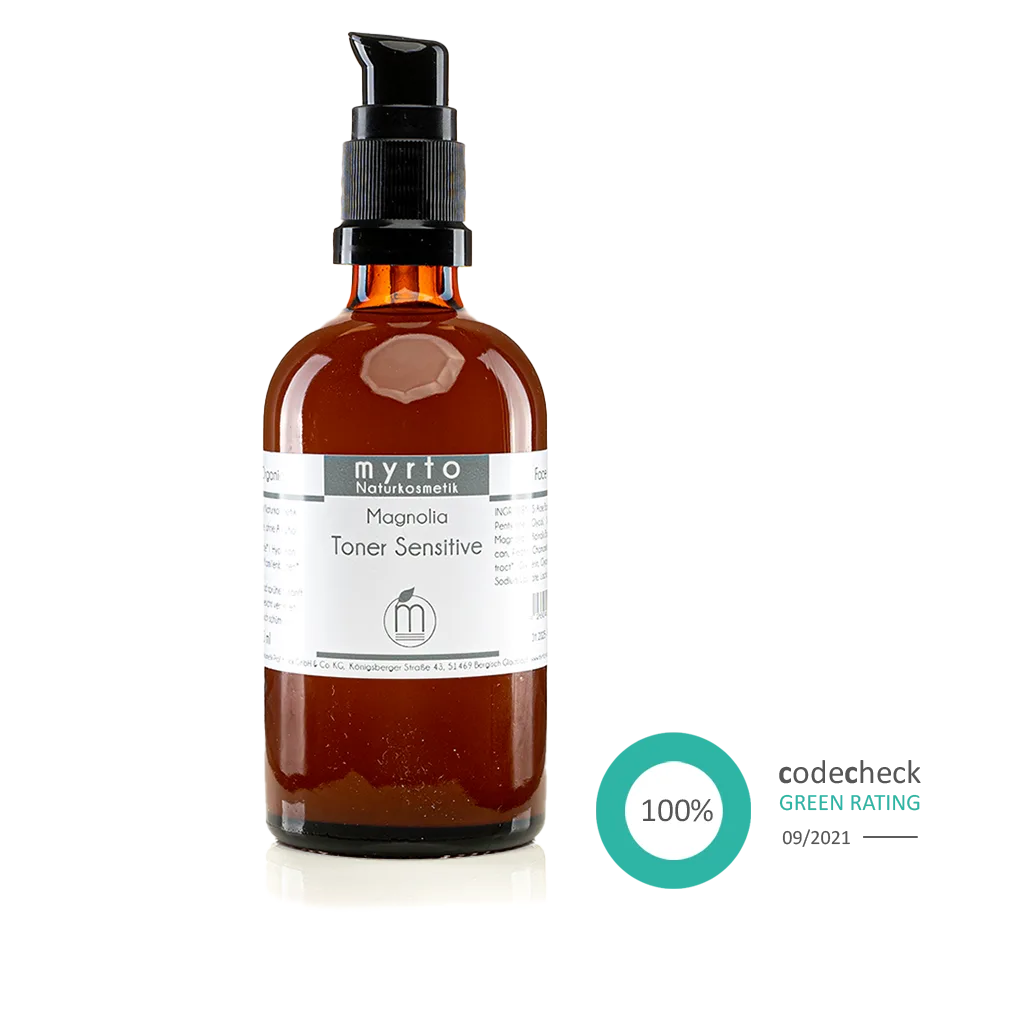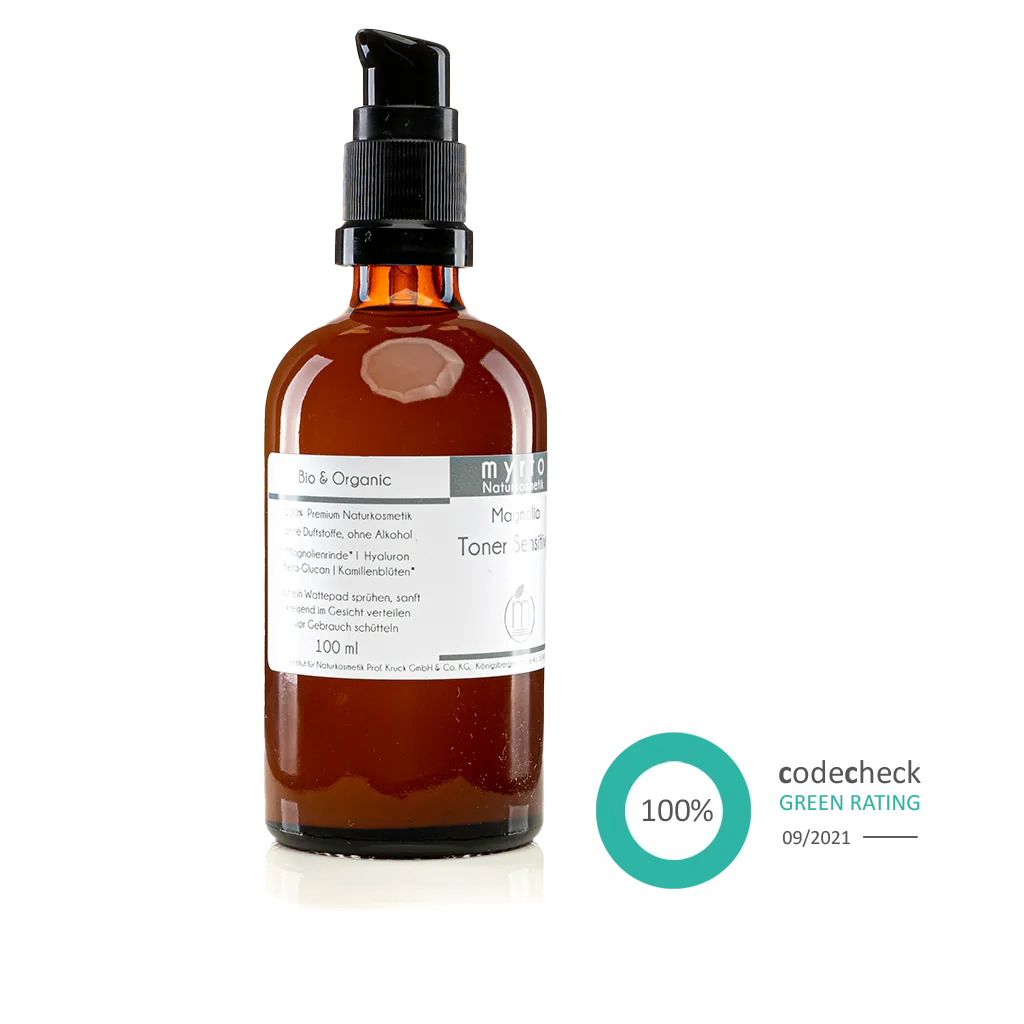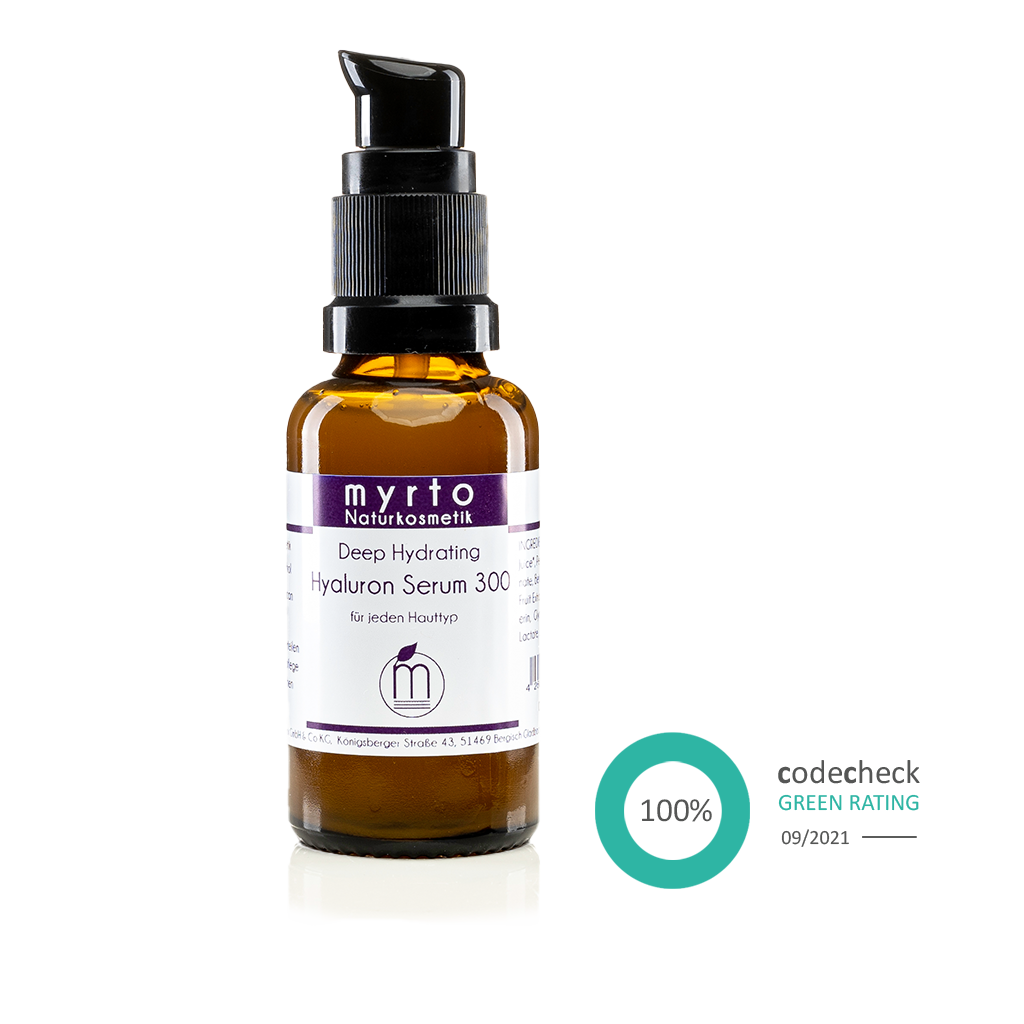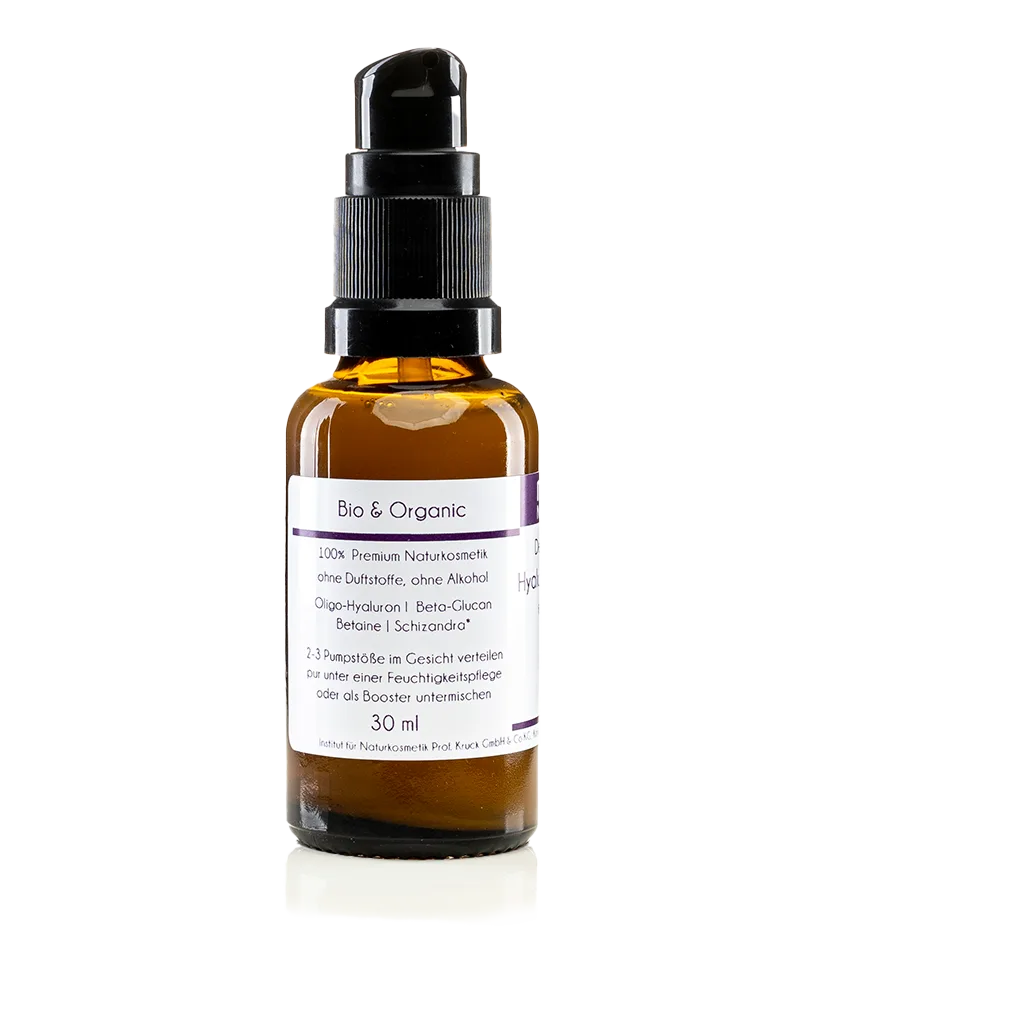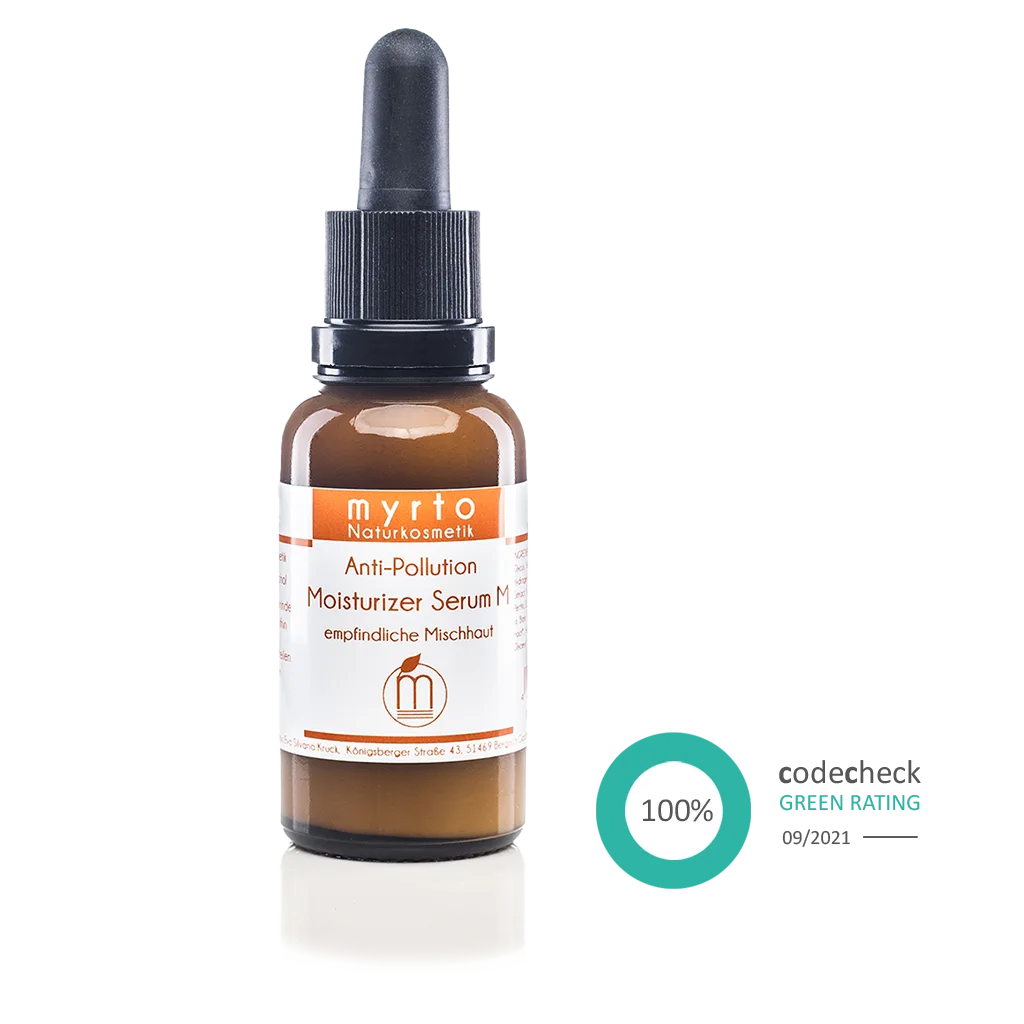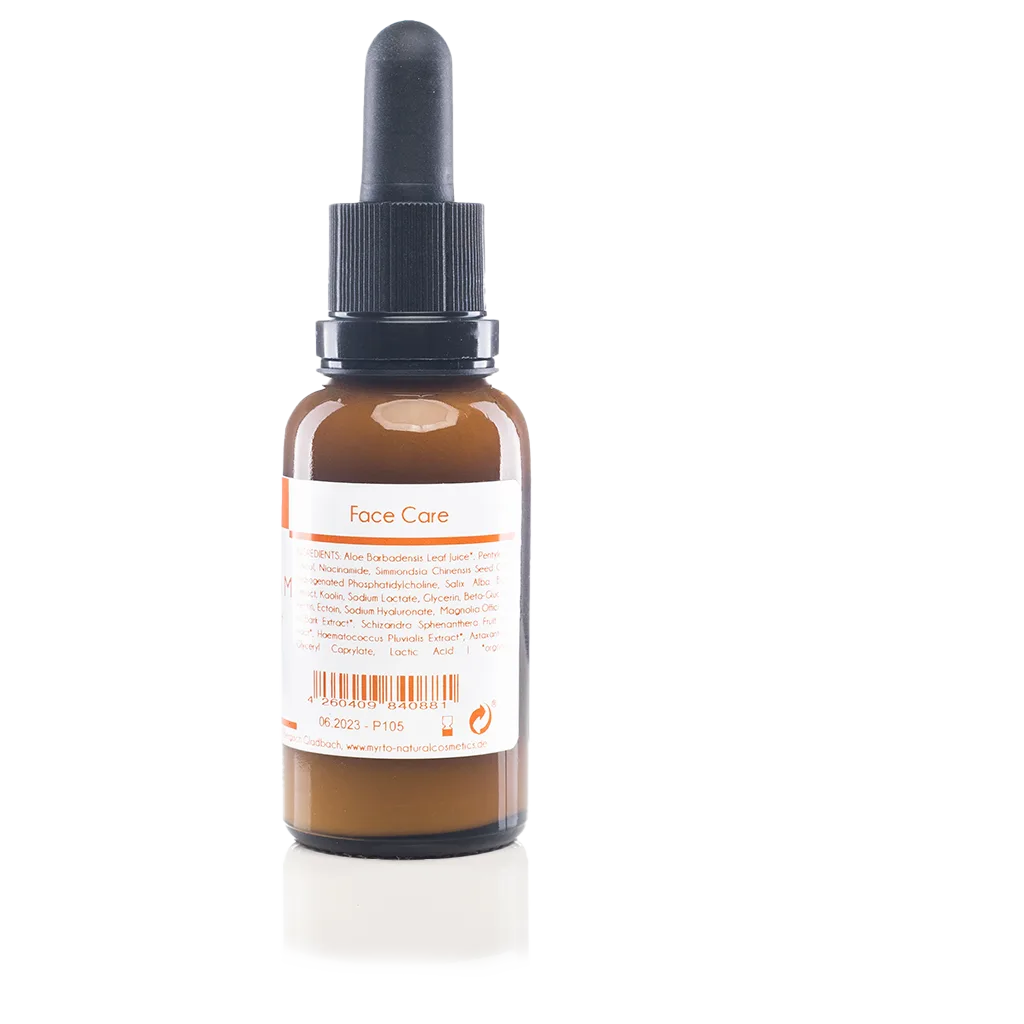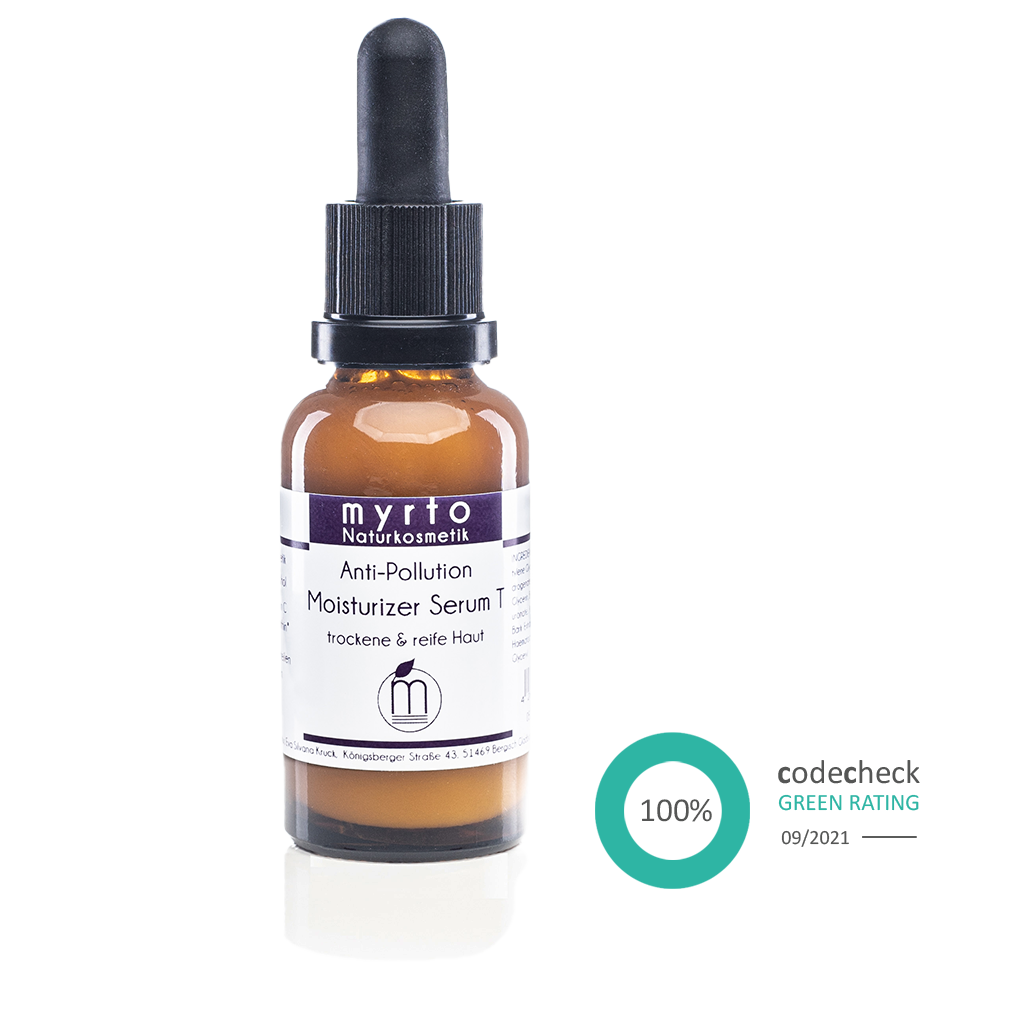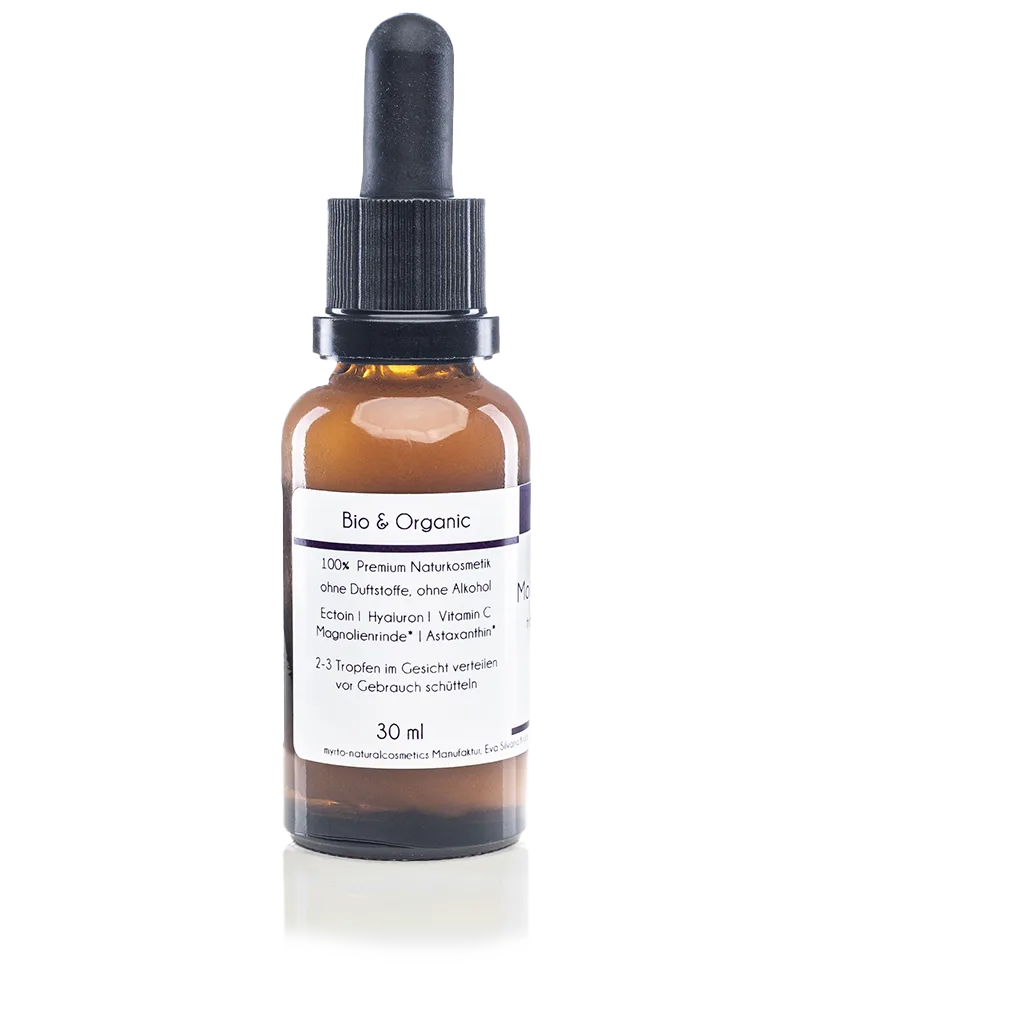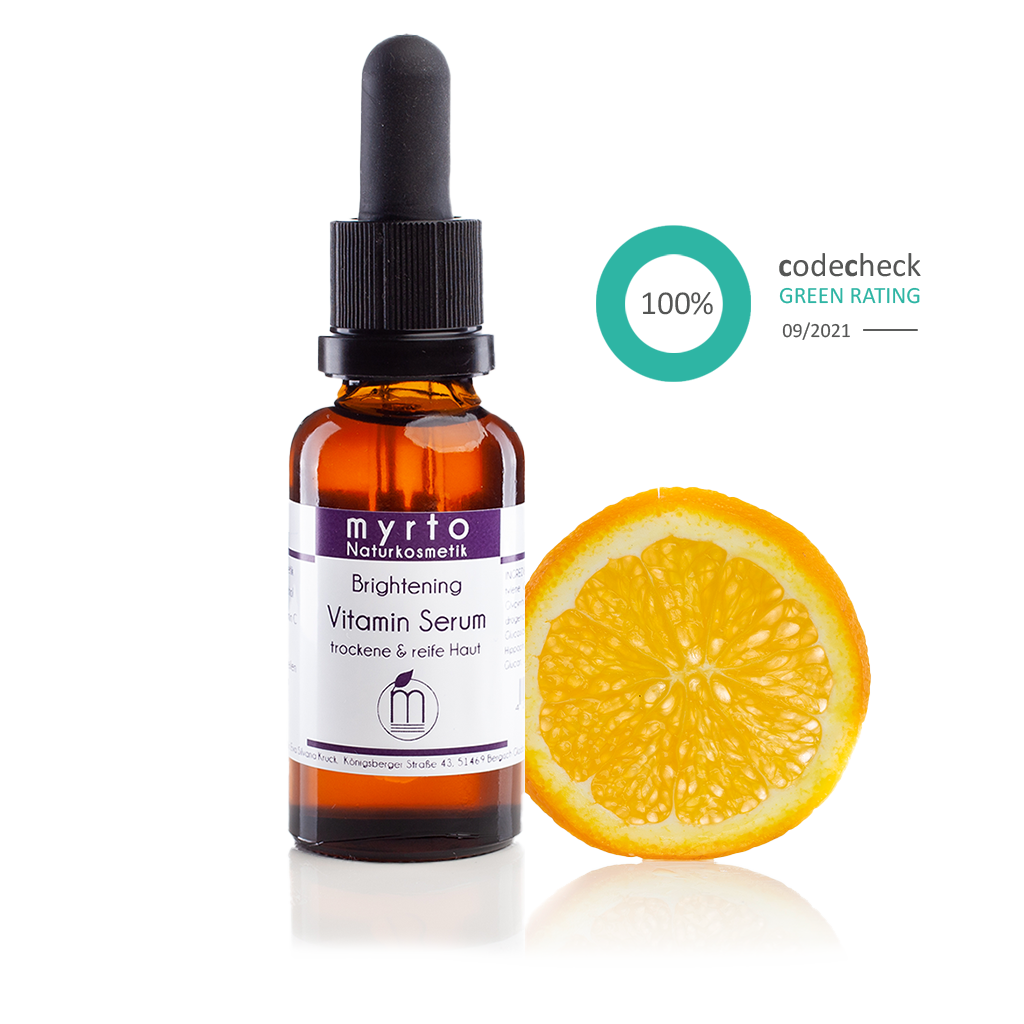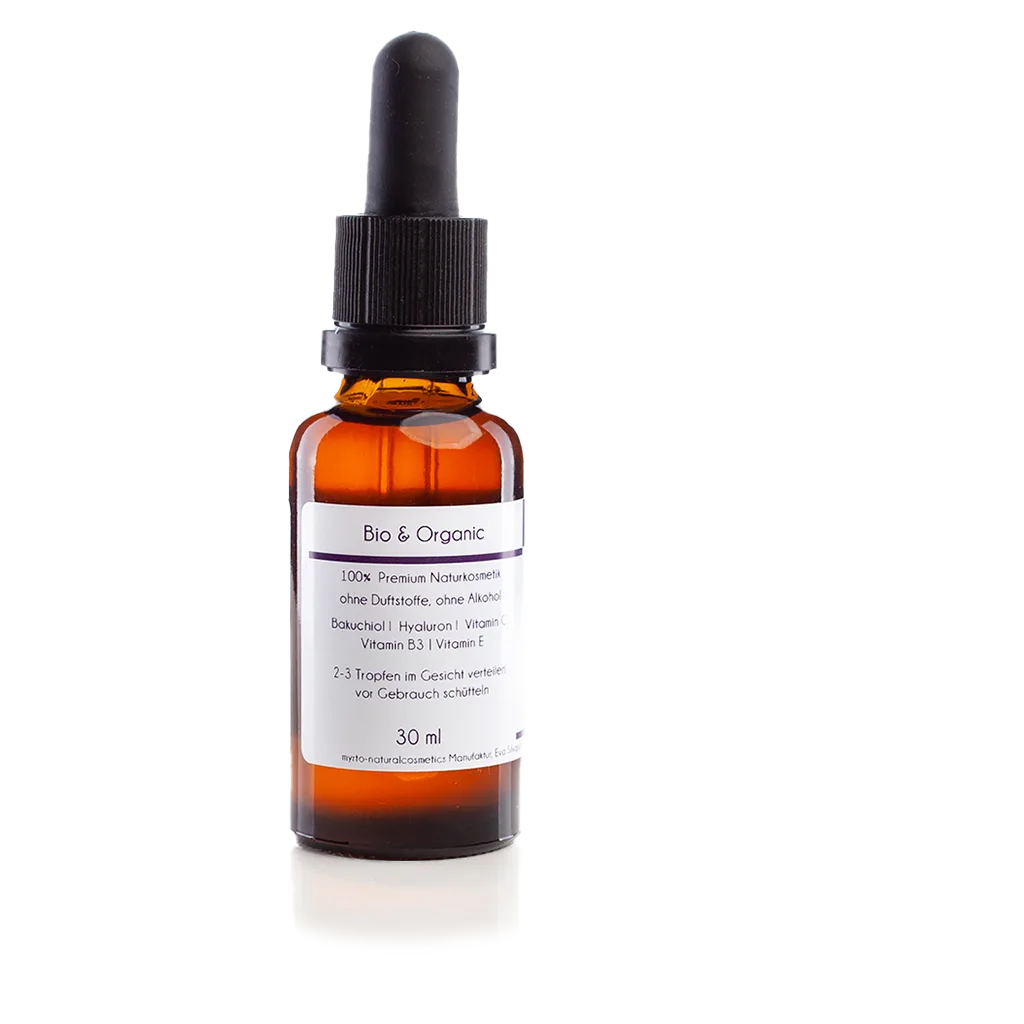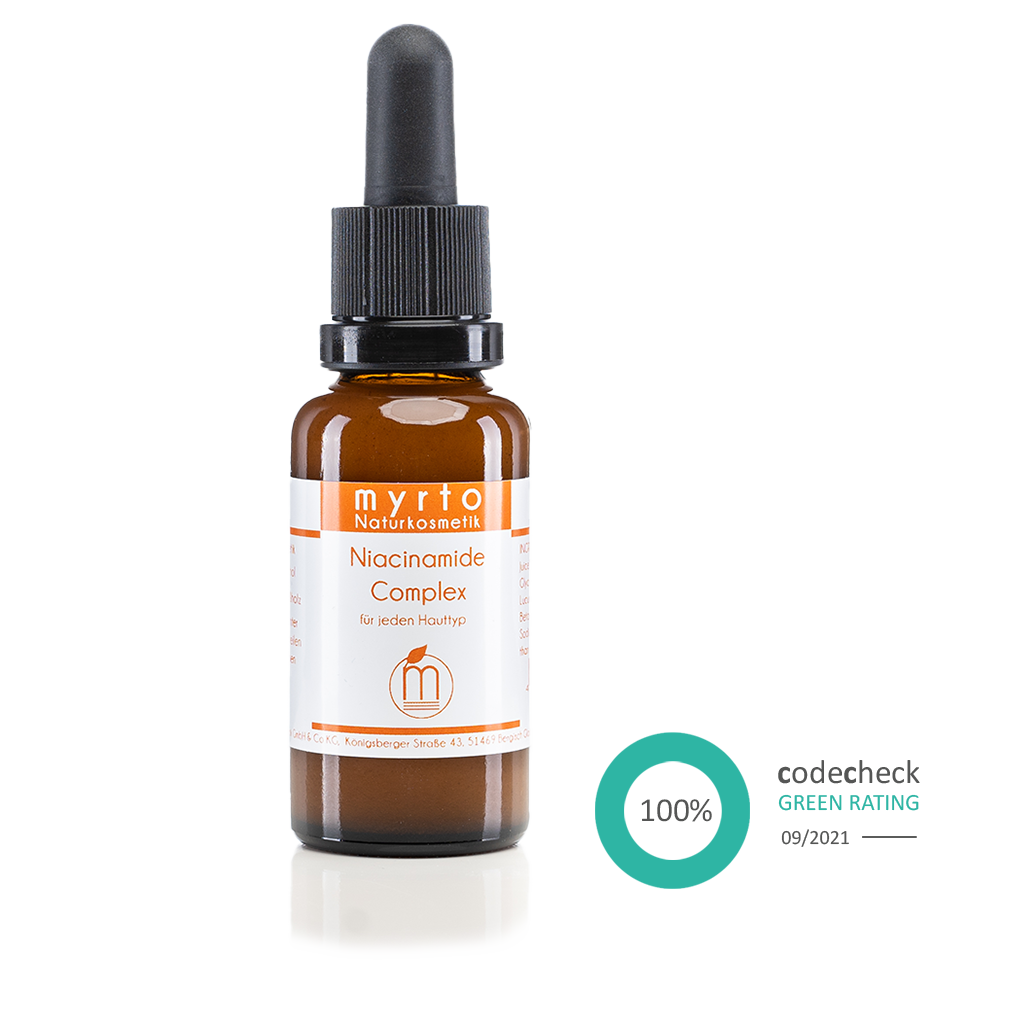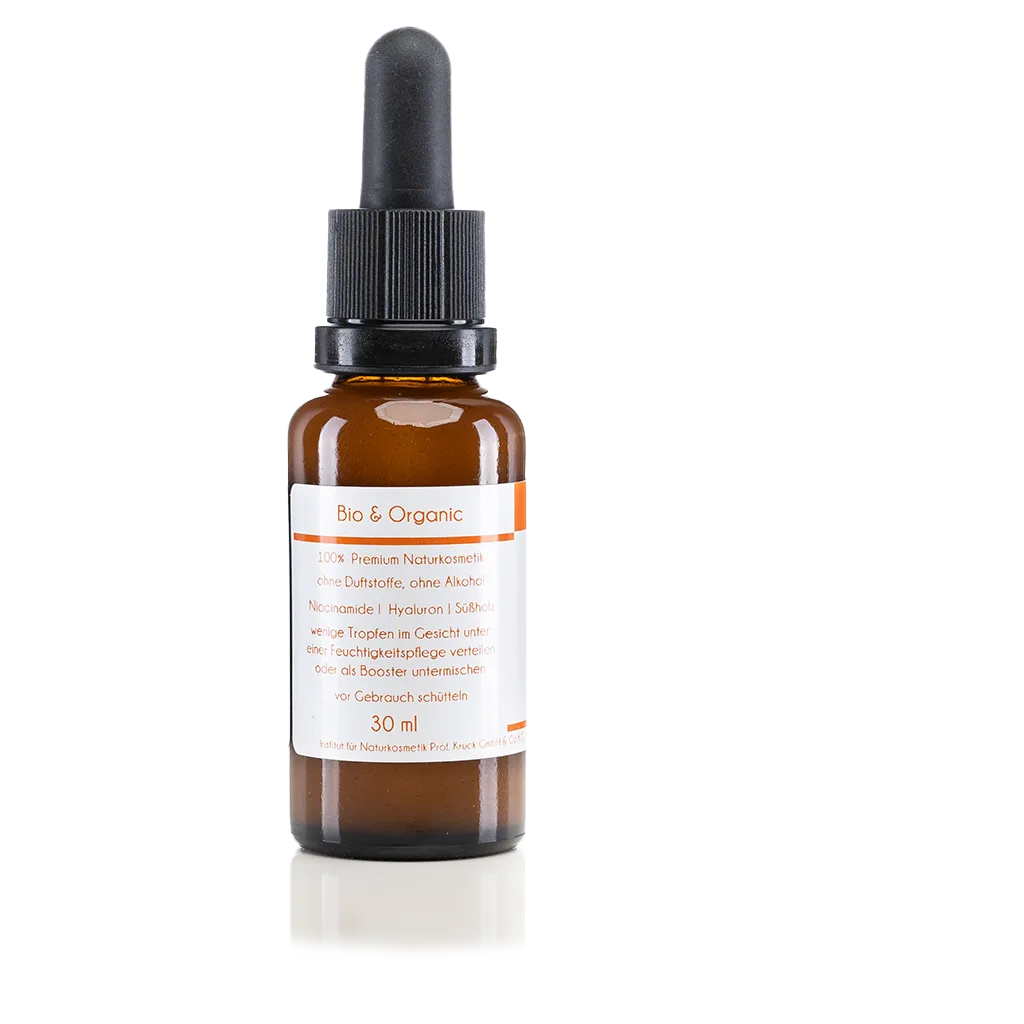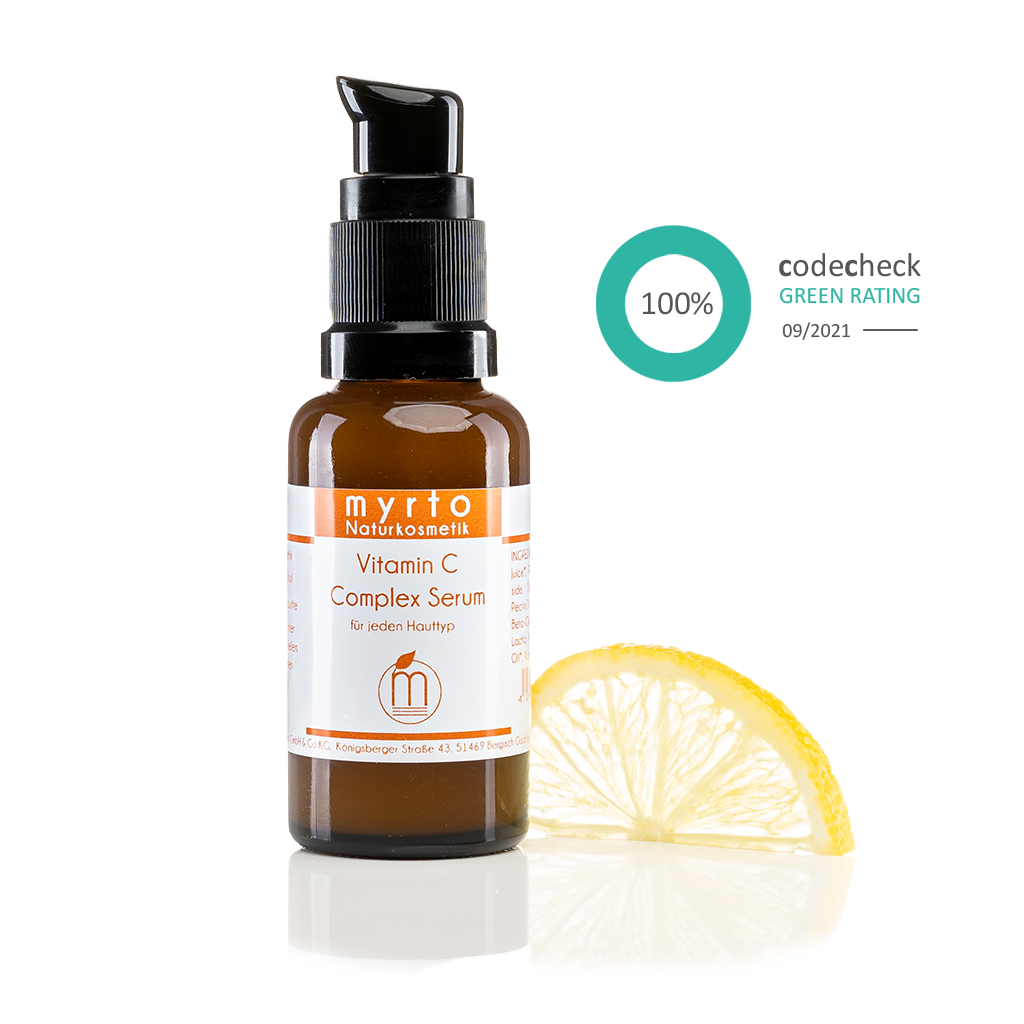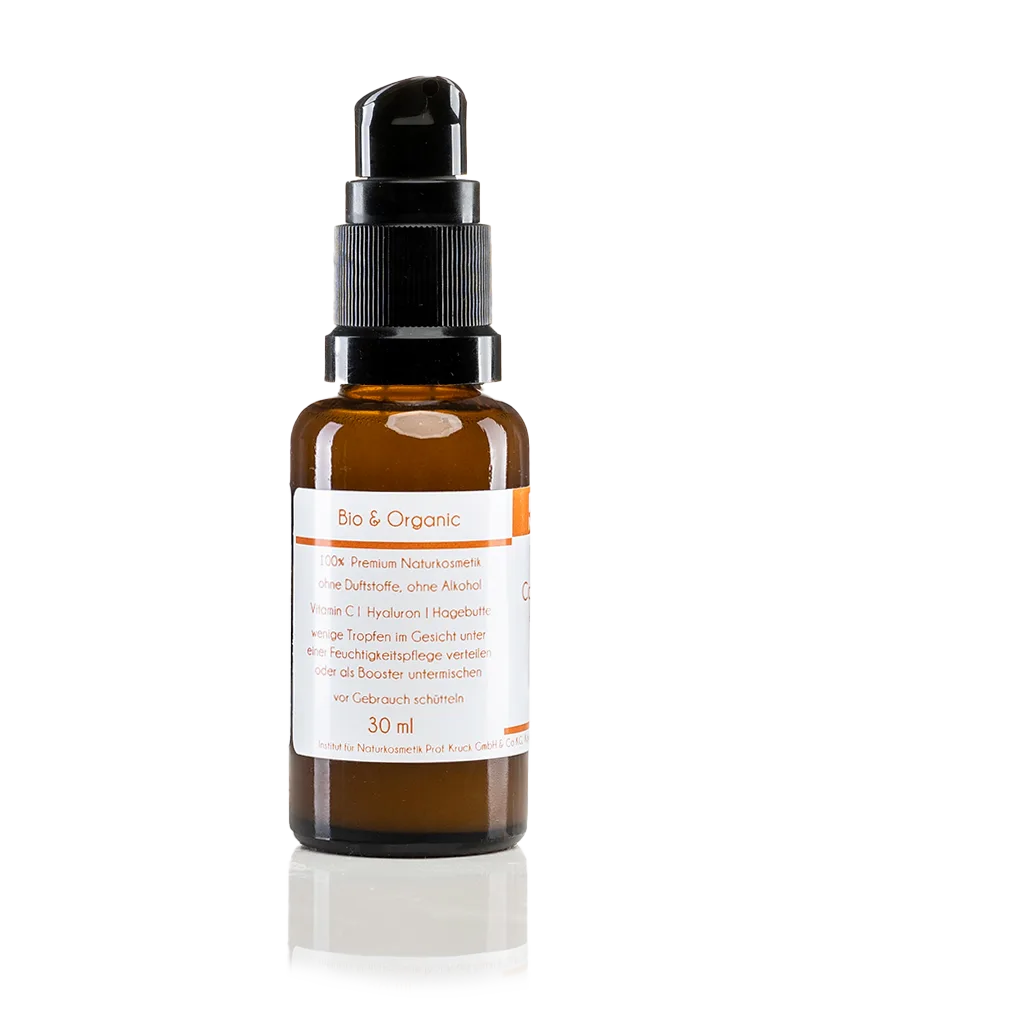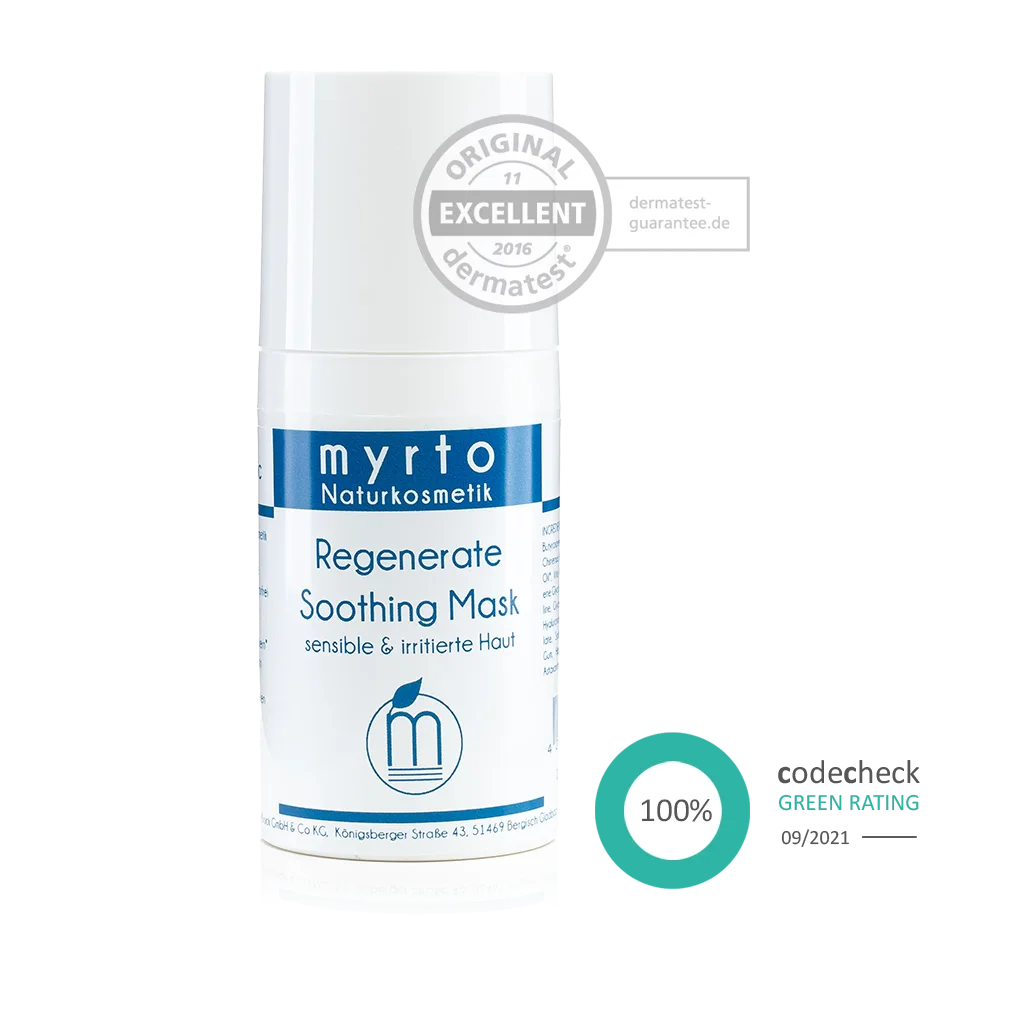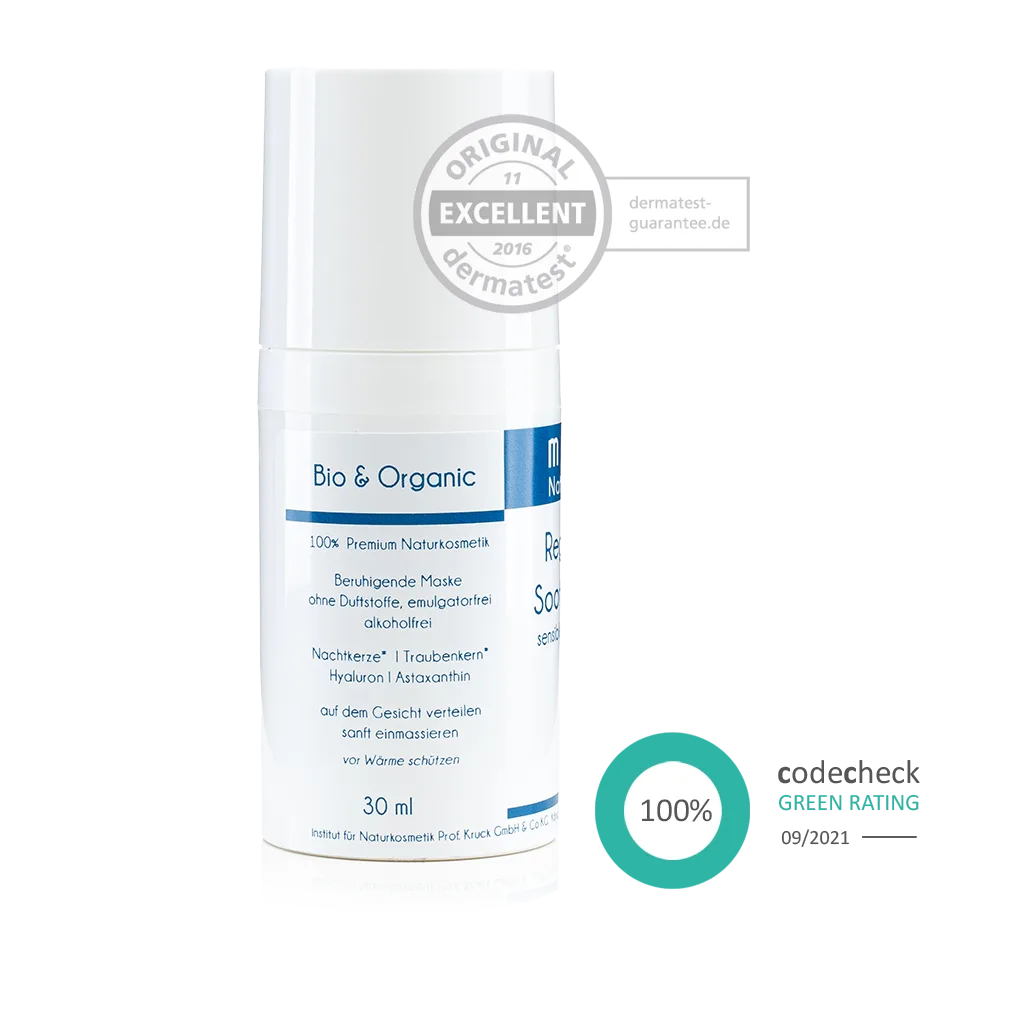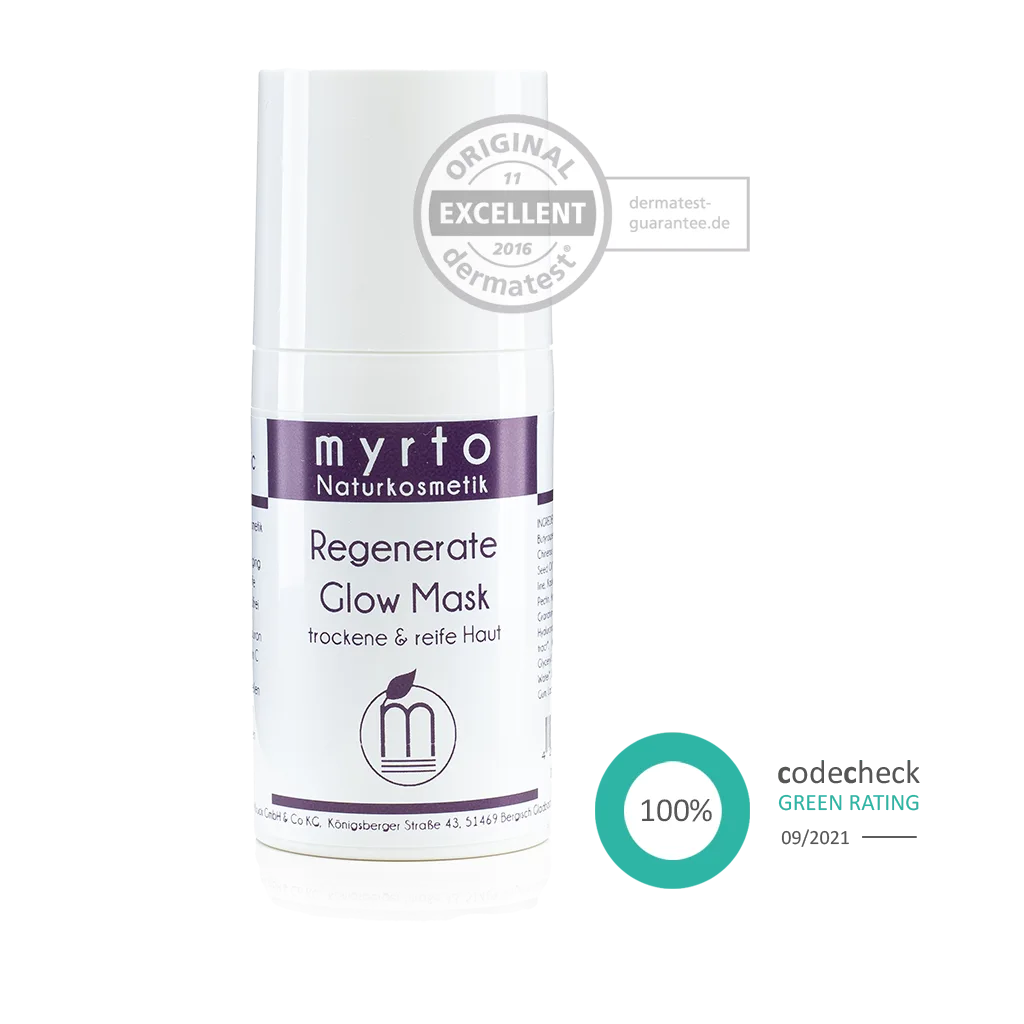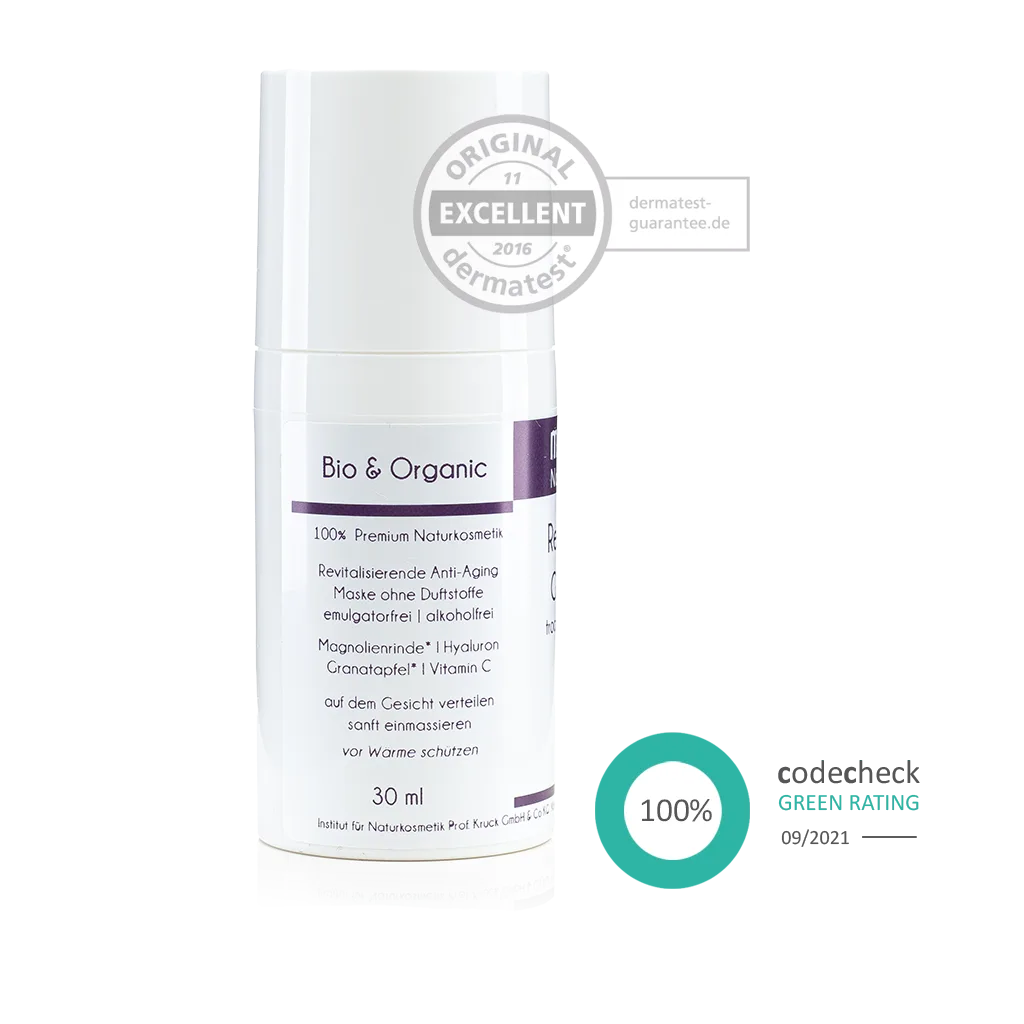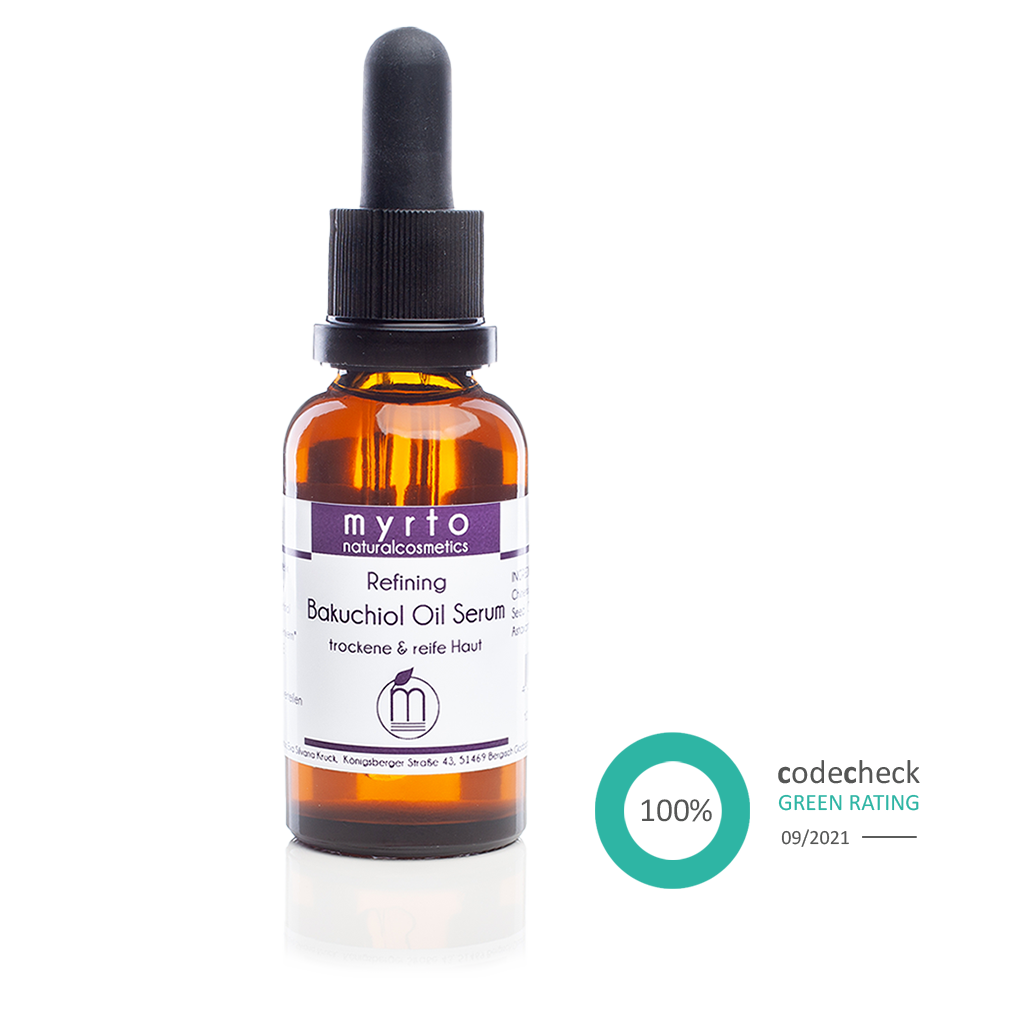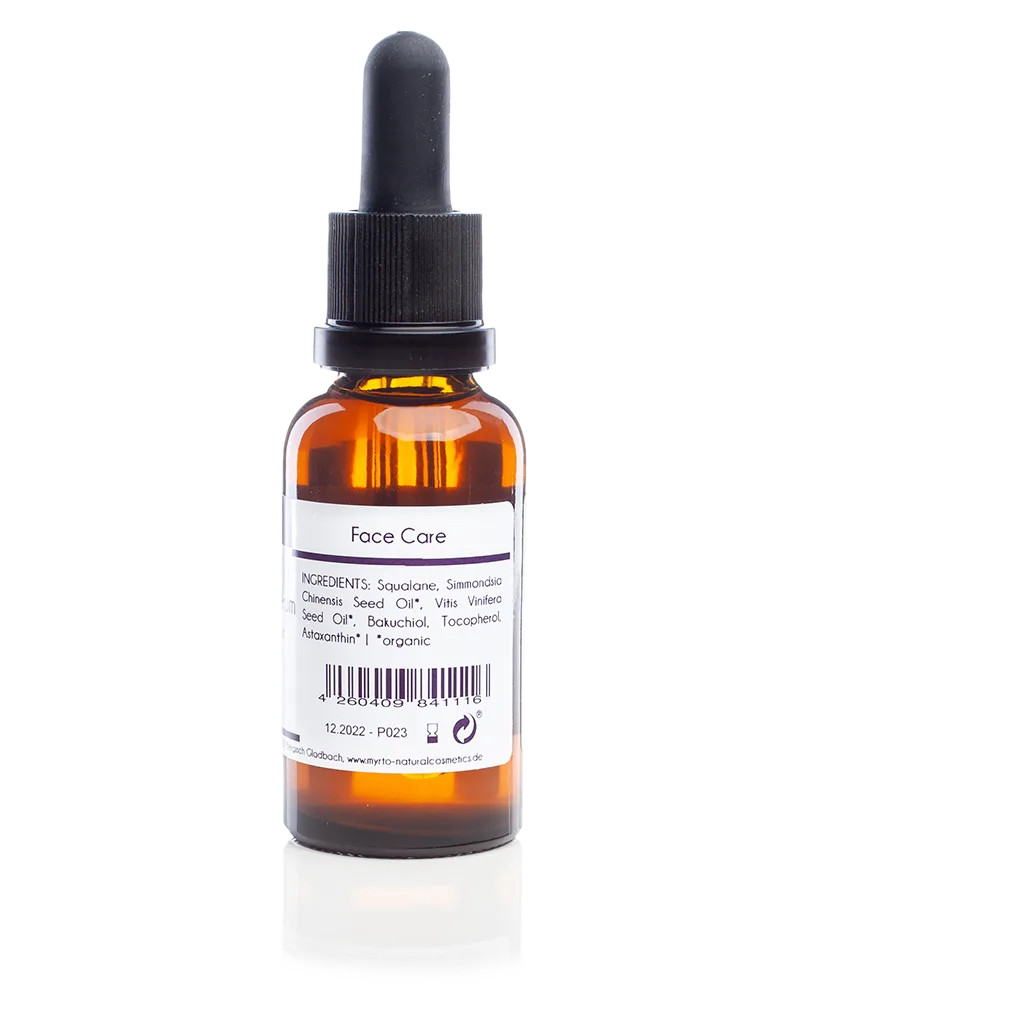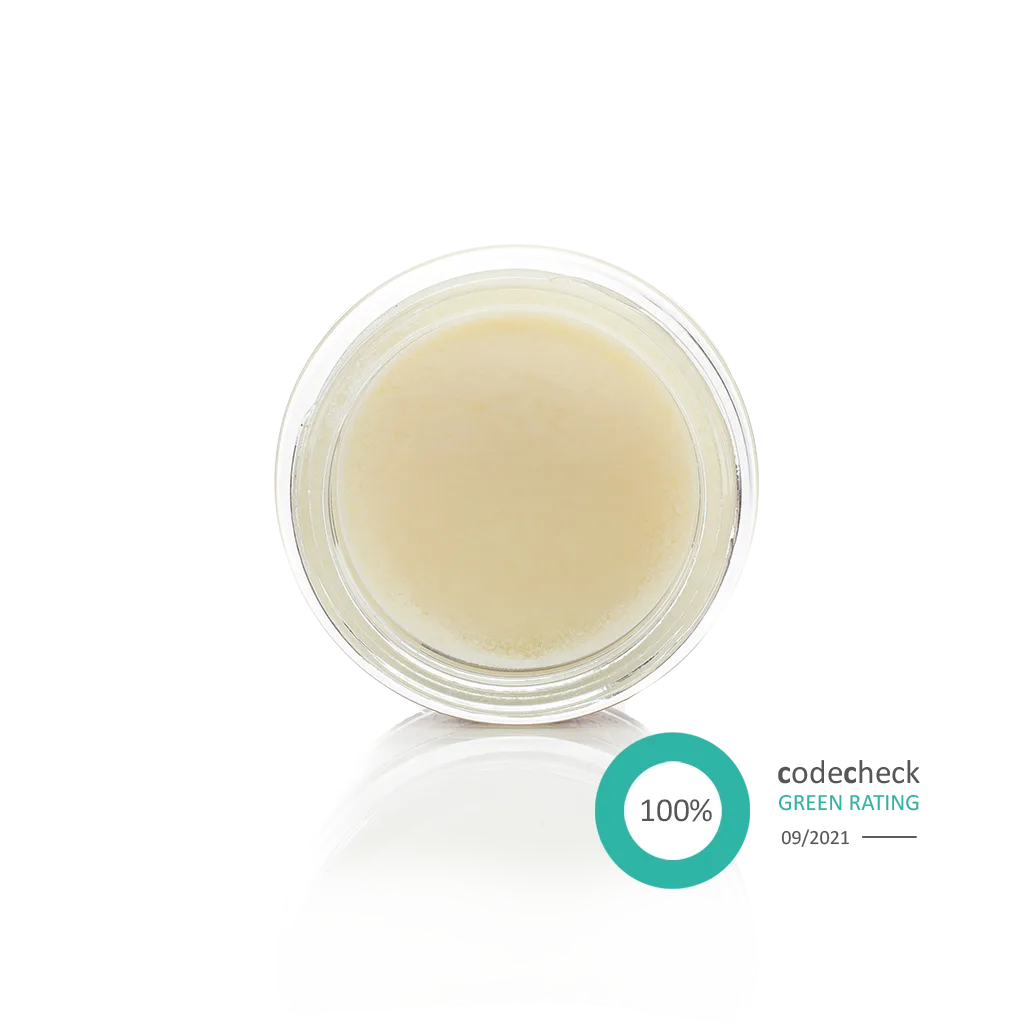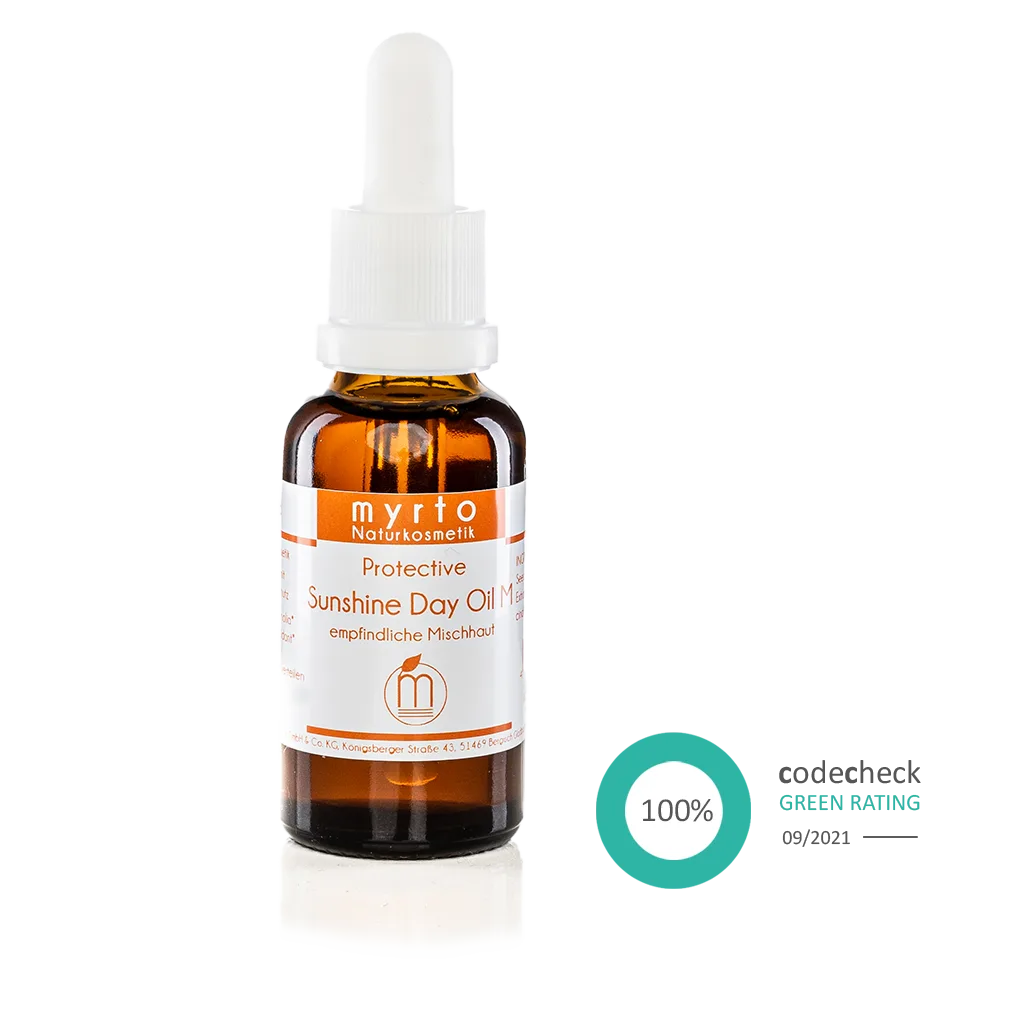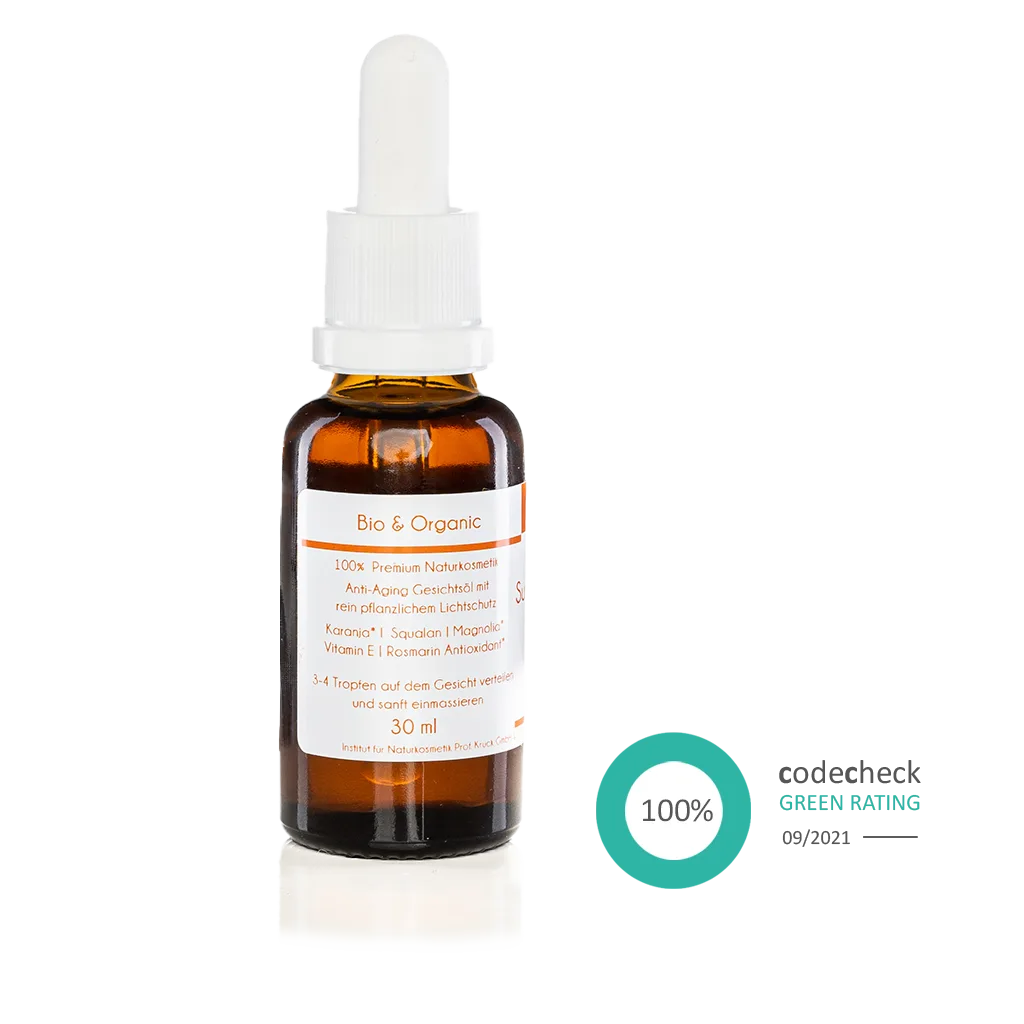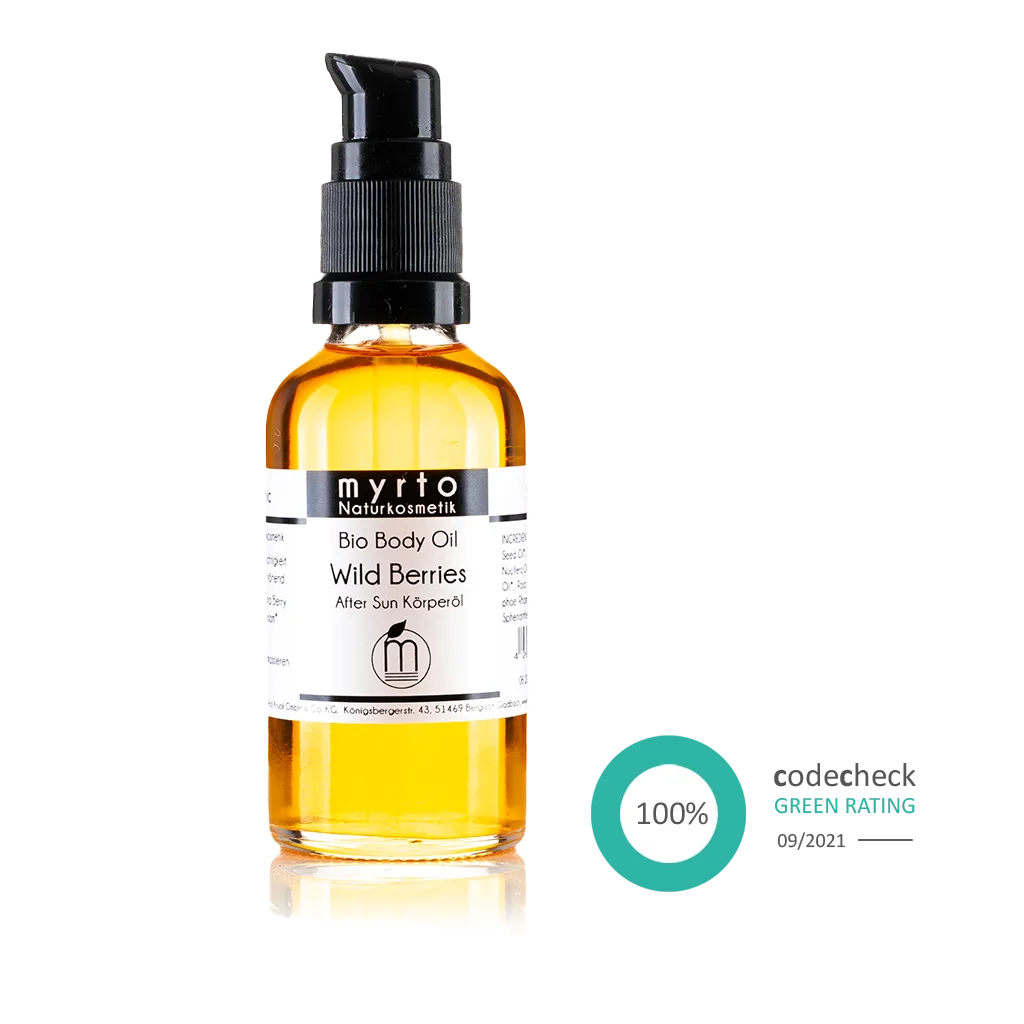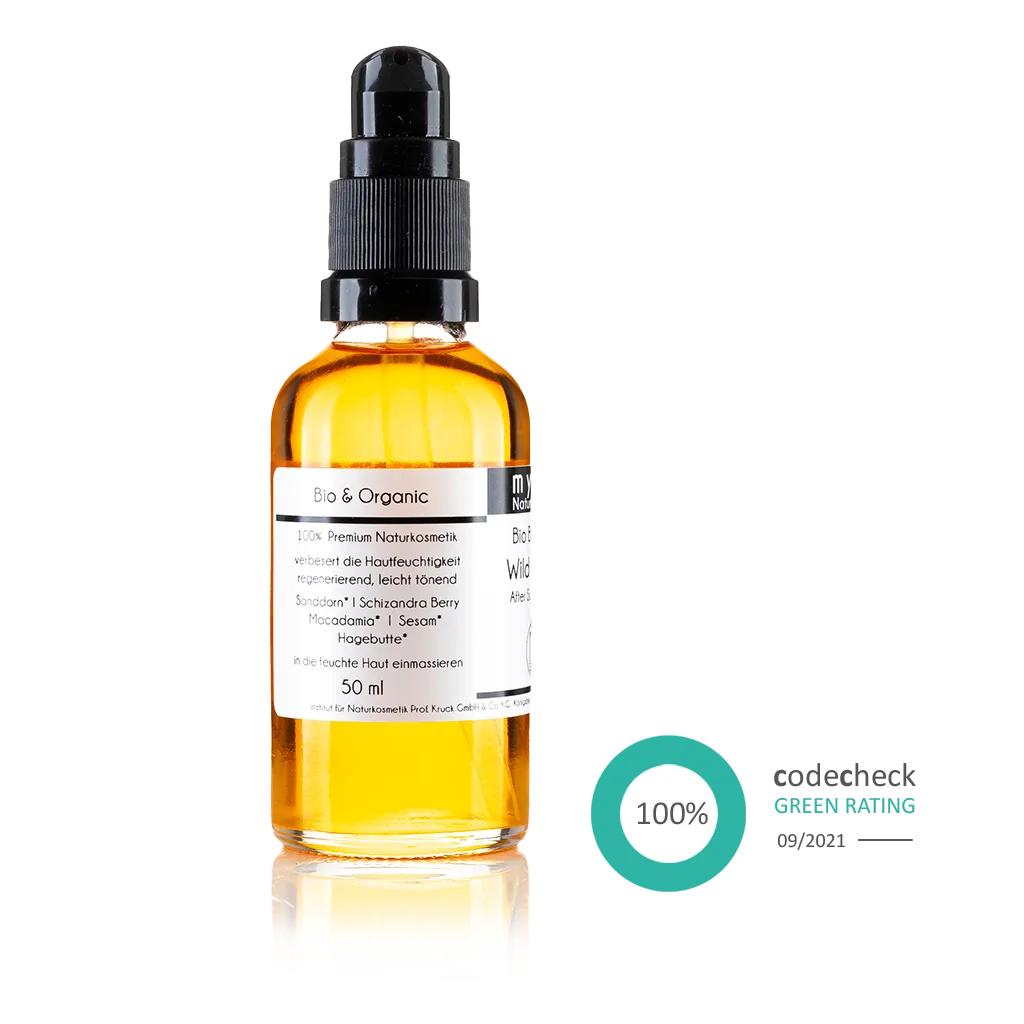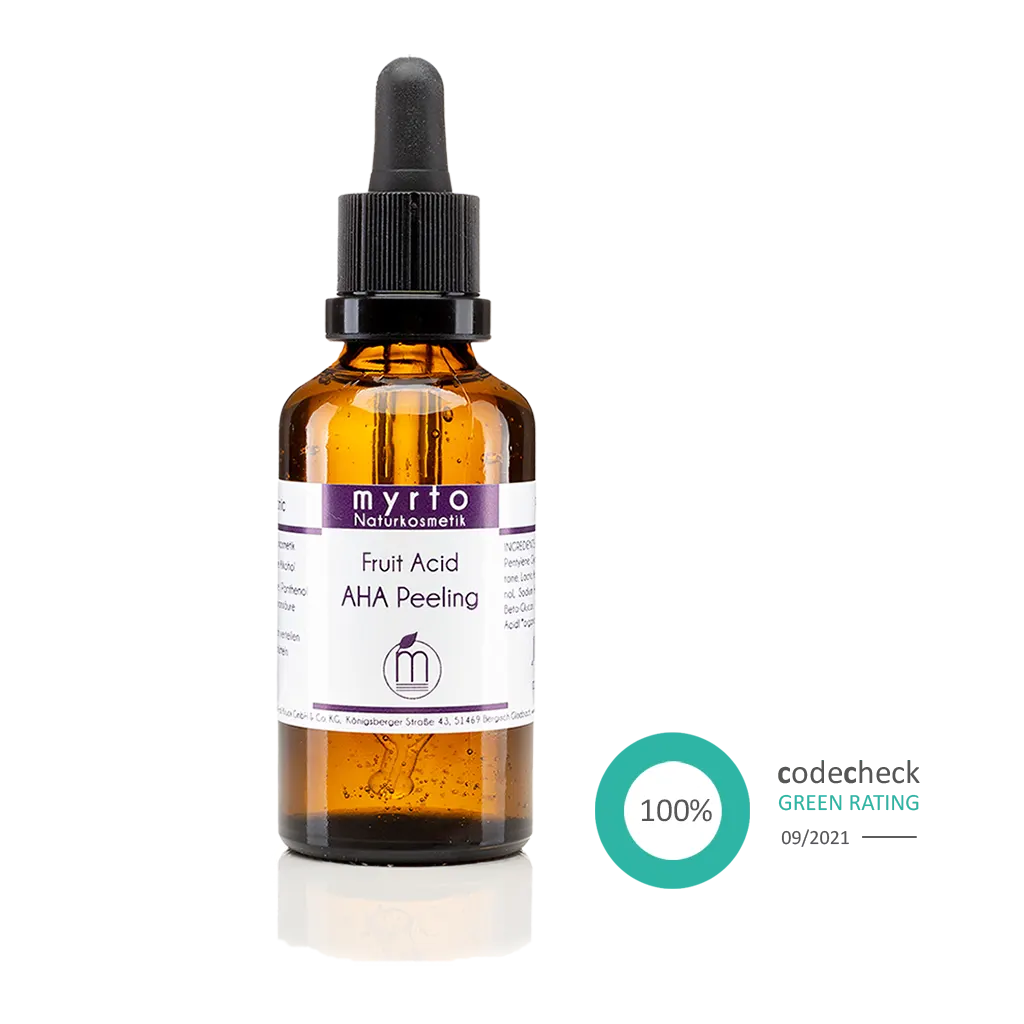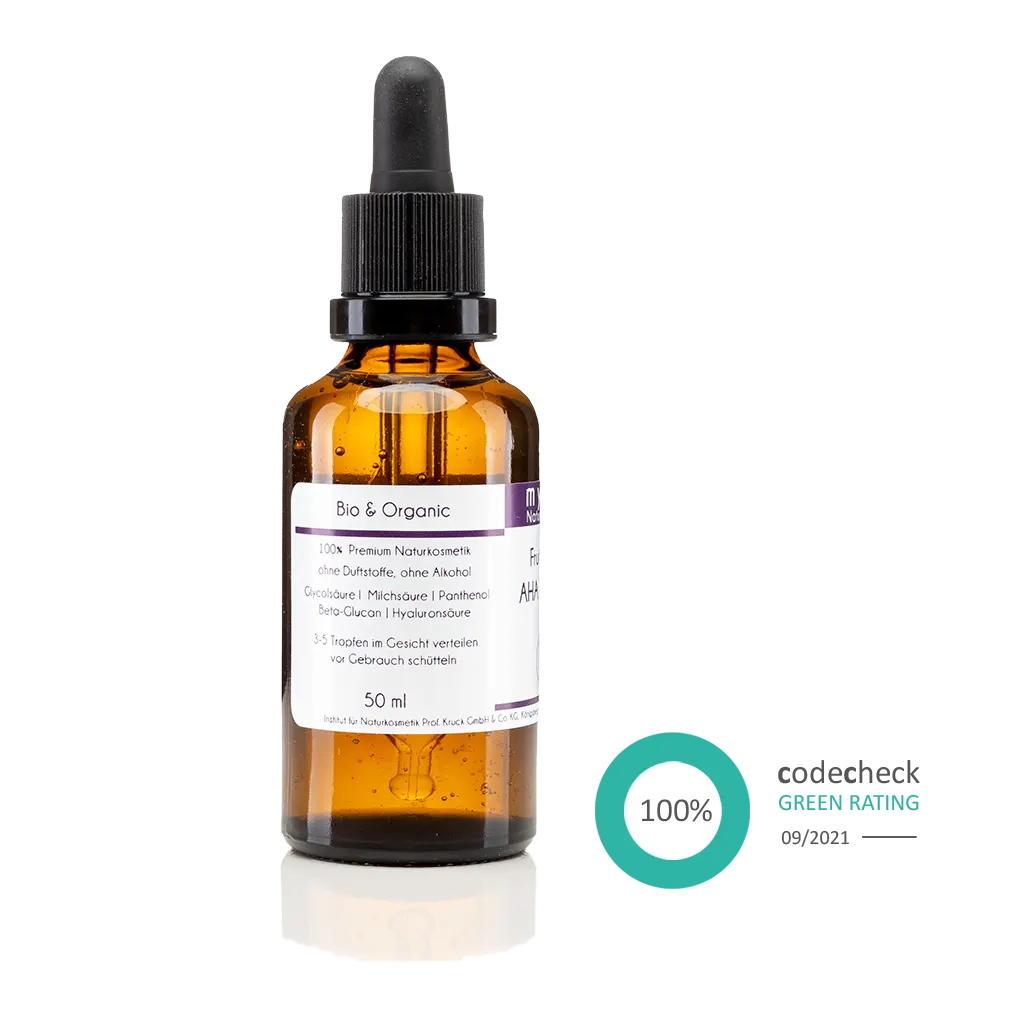Filters
Recognize and protect sun-damaged skin – tips and organic care
Gentle organic care for sun-damaged skin – protects against photoaging and regenerates UV-stressed skin. With antioxidants, bakuchiol, and vitamin C.
Sun-damaged skin manifests itself in both immediate reactions like sunburn and long-term, often more subtle effects like photoaging. This article explains how to recognize sun-induced skin damage, which factors play a role, and how you can protect your skin from UV damage. You'll also learn how moderate sunlight supports the immune system and how the body produces vitamin D.
Characteristics of sun-damaged skin
Sun-damaged skin has the following acute symptoms:
- Reddening of the skin: due to dilated blood vessels
- Sunburn: painful, inflammatory reaction of the skin
- Itching and irritation
- Swelling and blistering
Long-term damage from UV radiation leads to photoaging and manifests as:
- Deeper wrinkles and lines: due to the breakdown of collagen and elastin
- Thickened, leathery skin structure: due to degeneration of elastic fibers
- Dry, flaky skin: caused by a damaged skin barrier
- Pigment disorders: e.g., age spots or white pigment spots
- Telangiectasias (spider-like blood vessels): caused by weakened capillaries
Causes of skin damage caused by solar radiation
Both short-wave UVB and long-wave UVA rays damage the skin in different ways.
- UVB radiation: It penetrates the epidermis and causes acute reactions such as skin redness, sunburn, and blisters. Repeated sunburn increases the risk of DNA damage and skin cancer.
- UVA radiation: This penetrates deeper into the skin, down to the dermis, damaging connective tissue and thus promoting premature skin aging (photoaging). UVA rays can even damage the skin through clouds and window glass.
Other risk factors:
- Individual skin type: People with light skin and little melanin are more susceptible to visible UV damage.
- Environmental factors: Air pollution and particulate matter increase UV damage by forming free radicals that cause oxidative stress in the skin.
Prevention of sun-related skin damage
Conscious exposure to the sun protects the skin from damage:
- Avoid direct sunlight : In summer, stay in the shade between 11 a.m. and 3 p.m., as UV radiation is strongest during this time. UV exposure is increased due to reflections in snow, sand, or water.
- Wear protective clothing : Natural fabrics, dark colors, and tightly woven textiles provide better protection. UV-protective clothing, a sun hat, and sunglasses also help.
- Acclimate your skin to sunlight gradually : Start with moderate sun exposure in spring to stimulate the formation of a protective callus. This temporary thickening of the skin absorbs UV radiation and reduces its penetration into deeper skin layers.
- Strengthen the skin barrier : Use emulsifier-free skincare products to keep skin hydrated and minimize transepidermal water loss (TEWL). A healthy skin barrier provides better protection against external aggressors such as UV radiation.
Product tips to support sun-damaged skin
Light-induced skin aging can be counteracted with targeted care:
- Organic Sunshine Day Oil : Contains natural, plant-based sunscreen to strengthen antioxidant and photoprotective defenses.
- Organic facial serums : They contain vitamins C and E, bakuchiol, sea buckthorn, magnolia bark and astaxanthin, which have cell-renewing and repairing effects.
- Organic face masks : These masks support skin regeneration and strengthen the skin barrier overnight.
- After Sun Body Oil Wild Berries : Ideal for soothing and caring for the body after sun exposure.
Vitamin D production through sun exposure
Sunlight promotes the body's production of vitamin D, which supports the immune system and can prevent depression. A sufficiently high vitamin D level helps detect and eliminate abnormal cells early. Studies suggest that vitamin D deficiency increases the risk of certain types of cancer. Synthetic vitamin D supplements cannot completely replace the natural synthesis of vitamin D through sunlight.
Conclusion
Whether acute irritation from sunburn or long-term signs of photoaging, UV radiation leaves its mark on our skin. With a conscious sun routine and targeted organic skincare, you can effectively protect, regenerate, and strengthen your skin. Antioxidants such as vitamin C, bakuchiol, and sea buckthorn support natural cell renewal, while emulsifier-free skincare products help permanently rebuild the skin's barrier. This keeps your skin healthy, resilient, and radiant—even after sunny days.
🌞 Protect your skin – discover our purely plant-based facial oils without nanoparticles or chemical filters for healthy summer skin.



